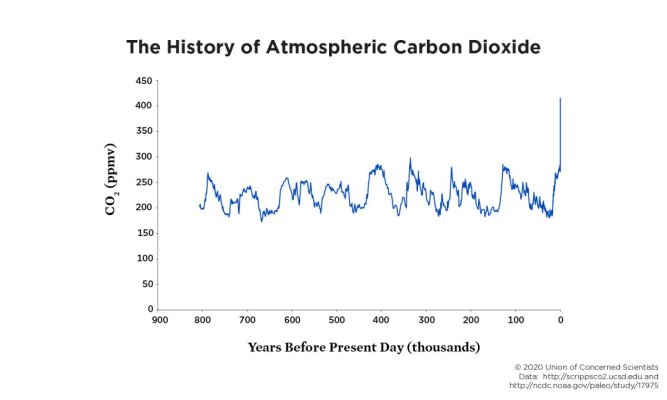DBG8492
Senior Member
- Joined
- Jan 16, 2023
- Messages
- 245
- Vessel Name
- Sovereignty
- Vessel Make
- 1986 Marine Trader 36 Sundeck
So I ask the deniers to present a theory that proves MMCC is wrong. Explain where it’s inconsistent with observations. Remember to speak to climate not just transient weather.
So far, no one here has denied that the climate changes - of course it does. In my first post, I agreed that it changes all the time.
The bone of contention is whether anything humans do contributes in any significant way, and if so, to what extent?
My position is that humans might be having an effect, but it's doubtful for reasons I've already stated. Furthermore, I assert that unless you can document and prove the specific function and relevance of each system within all of the nested and sub-nested complex systems that make up the overall complex planetary climate system, you should not be trying to make sweeping changes to a single piece of that system because it's impossible to know the results with 100% certainty.
You mentioned how several scientific "knowns" changed as new information emerged. Why should this be any different? Everyone claims to know that humans are changing the climate and CO2 is the primary driver - but what if you're all wrong? You're all humans before you're scientists, and a collection (or consensus) of humans isn't any more intelligent or enlightened than any single one of you. Furthermore, a group of scientists is no less susceptible to group dynamics than any other group.
Think about this for a second. They're not asking everyone to give up plastic drinking straws. They're asking everyone in the world to make drastic changes that will alter their lives forever. The economic effects alone for the majority of people will be crippling, resulting in mental and physical second-order effects. And all of these consequences will be passed on to their children and their children's children. The gravity of what's being asked for cannot be overstated. And I'm sorry, but I don't believe for a second that anyone can honestly guarantee with 100% certainty the outcome if they successfully force all of these changes.
Finally, I don't just listen to what people say, I watch what they do. I don't see any true-believer politicians or scientists taking meaningful actions that show there is any urgency with this.
They continue to use their private jets to fly around the globe and attend "climate summits" in air-conditioned five-star hotels and conference buildings with seven days' worth of five-star meals, including the finest meats and fish. They haven't sold their beach houses and moved to higher ground. They haven't sold their boats - and so on. What do they do? They drive a Tesla when not being chauffeured around. They throw a couple of solar panels on their house. They get out of the limo and ride their bicycle the last 100 yards to the office so the press can photograph them doing so. And they make speeches about what the rest of us need to give up to deal with Climate Change.
I'm sorry, but to many of us on the outside, it doesn't look like they believe it; it looks like they're using it for political purposes.
This is my last post on this thread - I shouldn't have posted in the first place. I didn't come here to talk about this stuff; I came to talk about my boat and other people's boats. I don't wish anyone any ill will and don't want anyone wishing any on me. Unfortunately, I've found that given the way things are, minor disagreements over things of this nature are an easy way to lose friends - sometimes close friends. It can also hinder making them in the first place, which runs counter to why I'm here. So, I will keep my big mouth in check from here on out and limit my conversations to more specific boating topics.
Thanks for the discussion Doc (and everyone else) - I hope you don't hold it against me.


